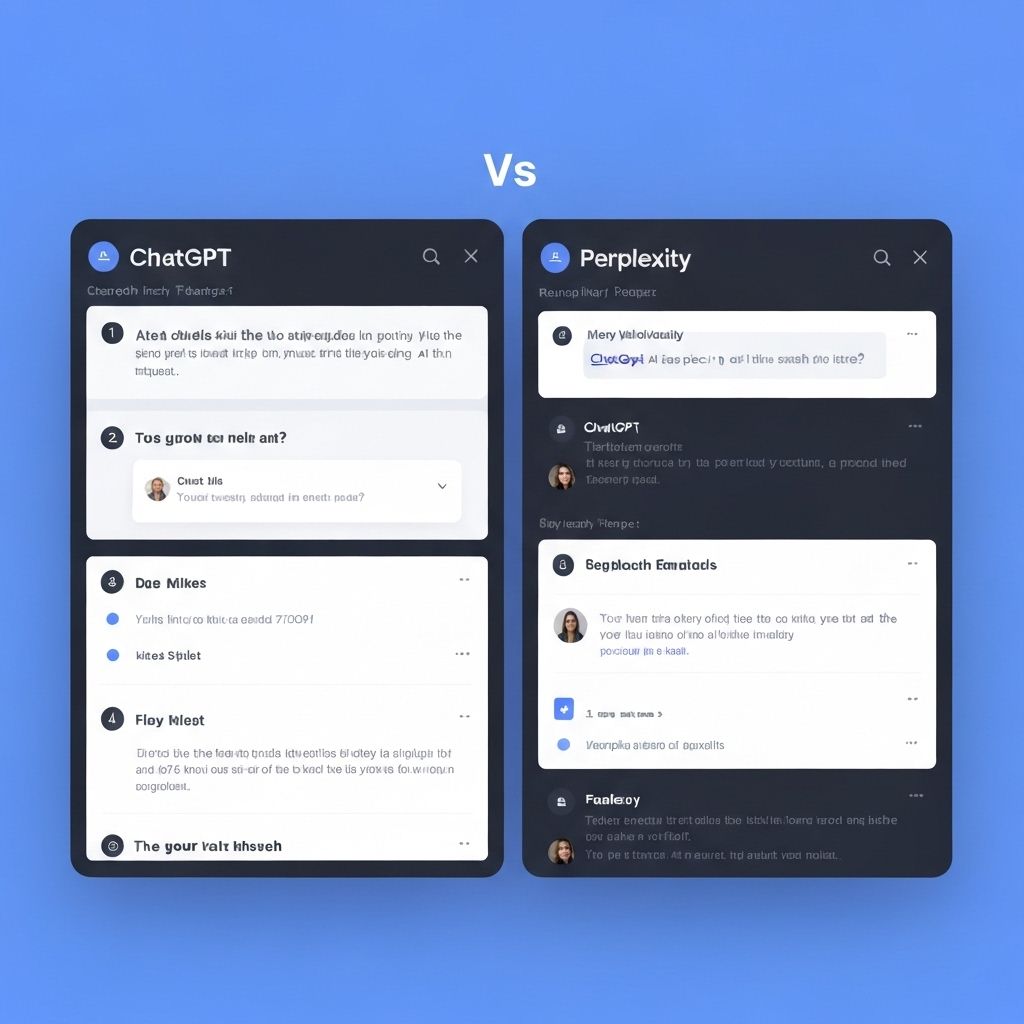Search is changing. Fast. ChatGPT, Perplexity, Google's AI Overviews, and other AI-powered search tools are fundamentally transforming how people find restoration companies. If your content isn't optimized for AI, you're invisible to a growing segment of potential customers.
According to Search Engine Journal, over 40% of consumers now use AI-powered search tools when researching services. For restoration companies, this means your traditional SEO strategy needs an upgrade.
What Makes Content "AI-Friendly"?

AI search engines don't work like traditional search engines. Google crawls and indexes pages based on keywords, backlinks, and technical factors. AI search engines like ChatGPT and Perplexity understand context, answer questions directly, and synthesize information from multiple sources.
This fundamental difference requires a new approach to content creation.
Watch: How AI is transforming the restoration industry
The 7 Principles of AI-Friendly Content

1. Write in Conversational Q&A Format
AI search engines excel at answering questions. Structure your content around the questions your customers actually ask. Instead of writing "Water Damage Restoration Services," write "How Much Does Water Damage Restoration Cost in [Your City]?"
Examples of AI-friendly questions for restoration companies:
- "How quickly should I call a water damage company after a flood?"
- "What does emergency water extraction cost?"
- "How long does mold remediation take?"
- "Will my insurance cover fire damage restoration?"
- "What's the difference between water damage categories?"
Each of these questions should be a dedicated section or page on your website with comprehensive, authoritative answers.
2. Provide Direct, Comprehensive Answers
AI search engines prioritize content that directly answers questions without fluff. Don't bury your answer in the third paragraph. Lead with the answer, then provide supporting details.
Bad example:
"Water damage is a serious problem that affects thousands of homeowners every year. At [Company Name], we've been serving the community for 20 years with professional water damage restoration services..."
Good example:
"Emergency water damage restoration typically costs between $1,200 and $5,000, depending on the extent of damage, water category, and affected square footage. Most insurance policies cover water damage from sudden events like burst pipes, but not gradual damage from leaks."
Notice how the good example immediately provides specific, actionable information. This is what AI search engines reward.
3. Use Structured Data and Schema Markup
Structured data helps AI understand your content's context and relationships. Implement LocalBusiness schema, FAQ schema, and Service schema on your website.
Our web design service automatically implements proper schema markup for restoration companies, ensuring your content is AI-friendly from day one.
4. Create Topic Clusters, Not Isolated Pages
AI search engines understand topical authority. Instead of creating random blog posts, build comprehensive topic clusters around your core services.
Example topic cluster for water damage restoration:
- Pillar page: "Complete Guide to Water Damage Restoration"
- Cluster pages:
- "Water Damage Categories Explained (Category 1, 2, 3)"
- "Emergency Water Extraction: What to Expect"
- "How Long Does Water Damage Restoration Take?"
- "Water Damage Insurance Claims Process"
- "Preventing Secondary Water Damage"
- "Water Damage vs. Flood Damage: Key Differences"
Each cluster page should link back to the pillar page and to related cluster pages. This internal linking structure helps AI understand your expertise and authority.
5. Optimize for Featured Snippets and AI Overviews
Google's AI Overviews and featured snippets are prime real estate for AI-friendly content. To optimize for these:
Featured Snippet Optimization Checklist:
- ✓ Use clear, descriptive headings (H2, H3) that match search queries
- ✓ Provide concise answers in 40-60 words immediately after the question
- ✓ Use bullet points and numbered lists for step-by-step processes
- ✓ Include relevant statistics and data points
- ✓ Add comparison tables for service options or pricing
- ✓ Use high-quality images with descriptive alt text
6. Include Local Context and Specificity
AI search engines are getting better at understanding local intent. When someone asks "Who's the best water damage company near me?", AI needs to understand your geographic service area and local expertise.
How to add local context:
- Mention specific neighborhoods, cities, and regions you serve
- Reference local landmarks, weather patterns, and common issues
- Include local statistics and case studies
- Discuss local building codes and regulations
- Mention partnerships with local insurance agents and property managers
Example: "In Portland's Pearl District, older buildings often experience water damage from aging pipe systems. Our team has restored over 200 Pearl District properties, working closely with local HOAs and property management companies."
Our SEO and marketing services specialize in creating hyper-local content that dominates AI search results in your service area.
7. Demonstrate E-E-A-T (Experience, Expertise, Authoritativeness, Trustworthiness)
AI search engines prioritize content from credible sources. Google's helpful content guidelines emphasize E-E-A-T, and AI search engines follow similar principles.
How to demonstrate E-E-A-T:
- Experience: Share real case studies, before/after photos, and specific project details
- Expertise: Highlight certifications (IICRC, RIA), years in business, and specialized training
- Authoritativeness: Get mentioned in local news, industry publications, and partner websites
- Trustworthiness: Display reviews, testimonials, insurance partnerships, and guarantees
Learn more about building trust and authority in our about page, where we share how we've helped restoration companies establish credibility in their markets.
Content Types That Perform Well in AI Search

1. Comprehensive Guides
Long-form guides (2,000+ words) that thoroughly cover a topic perform exceptionally well in AI search. These should be your pillar content pieces.
Example topics:
- "The Complete Homeowner's Guide to Water Damage Restoration"
- "Fire Damage Restoration: What to Expect from Start to Finish"
- "Mold Remediation 101: Everything You Need to Know"
2. FAQ Pages
Dedicated FAQ pages that answer 20-30 common questions are AI gold. Structure each question as an H3 heading with a concise answer below.
3. Comparison Content
AI search engines love comparison content because it helps users make decisions.
Example comparisons:
- "DIY Water Extraction vs. Professional Water Damage Restoration"
- "Ozone Treatment vs. Thermal Fogging for Odor Removal"
- "Insurance Direct Billing vs. Out-of-Pocket Payment"
4. Process Explanations
Step-by-step explanations of your restoration process help AI understand what you do and how you do it.
Example: "Our 7-Step Water Damage Restoration Process"
- Emergency Contact and Dispatch (within 60 minutes)
- Inspection and Damage Assessment
- Water Extraction and Removal
- Drying and Dehumidification
- Cleaning and Sanitizing
- Restoration and Repairs
- Final Inspection and Documentation
5. Local Resource Pages
Create pages that serve as local resources for homeowners dealing with water damage, fire damage, or mold issues.
Example: "Portland Water Damage Resources: Emergency Contacts, Insurance Agents, and Restoration Companies"
Technical Optimization for AI Search
Page Speed and Mobile Optimization
AI search engines prioritize fast, mobile-friendly websites. According to Google's Core Web Vitals, your site should load in under 2.5 seconds and be fully responsive on mobile devices.
Our restoration website design service builds sites that score 90+ on Google PageSpeed Insights, ensuring your content is accessible to both users and AI.
Clean, Semantic HTML
Use proper HTML structure with semantic tags (header, nav, main, article, section, footer). This helps AI understand your content hierarchy and relationships.
Internal Linking Strategy
Link related content together using descriptive anchor text. This helps AI understand your site's structure and topical relationships.
Good internal link: "Learn more about our Google Local Service Ads management"
Bad internal link: "Click here for more information"
Measuring AI Search Performance
Traditional SEO metrics don't fully capture AI search performance. Here's what to track:
Key AI Search Metrics:
- Featured Snippet Appearances: Track how often your content appears in Google's AI Overviews
- Zero-Click Search Rate: Monitor searches where users get answers without clicking
- AI Citation Rate: Check if AI tools like ChatGPT and Perplexity cite your content
- Voice Search Rankings: Test your rankings for voice search queries
- Conversational Query Performance: Track rankings for question-based searches
Common Mistakes to Avoid
1. Keyword Stuffing
AI search engines are sophisticated enough to detect and penalize keyword stuffing. Write naturally for humans, not algorithms.
2. Thin Content
Pages with less than 300 words rarely perform well in AI search. Aim for comprehensive, thorough content that fully answers the user's question.
3. Ignoring User Intent
Understand what users actually want when they search. Someone searching "water damage restoration cost" wants pricing information, not a sales pitch about your company history.
4. Neglecting Updates
AI search engines favor fresh, updated content. Review and update your content quarterly to maintain relevance and accuracy.
The Future of AI Search and Restoration Marketing
AI search is evolving rapidly. Within the next 2-3 years, we expect AI-powered search to account for 60%+ of all restoration company searches. Companies that optimize for AI now will dominate their markets.
At Apex Era, we're constantly testing and refining AI-friendly content strategies for restoration companies. Our clients who've implemented these strategies have seen:
- 40-60% increases in organic traffic
- 25-35% improvements in lead quality
- 50%+ increases in featured snippet appearances
- Higher conversion rates from AI-driven traffic
Getting Started with AI-Friendly Content
Week 1-2: Audit Your Current Content
- Identify your top 10 most important pages
- Analyze them for AI-friendliness using the principles above
- Create a prioritized list of improvements
Week 3-4: Implement Quick Wins
- Add FAQ sections to key pages
- Rewrite page titles and headings as questions
- Implement basic schema markup
Month 2-3: Create New AI-Optimized Content
- Write comprehensive guides for your core services
- Build topic clusters around your main offerings
- Create comparison and process explanation content
Ongoing: Monitor, Measure, and Refine
- Track your AI search performance metrics
- Update content quarterly
- Expand your topic clusters based on performance data
Conclusion
AI-friendly content isn't just about ranking in ChatGPT or Perplexity—it's about creating genuinely helpful, comprehensive content that serves your customers' needs. When you focus on answering questions thoroughly and structuring content logically, you'll naturally perform well in both traditional and AI search.
The restoration companies that embrace AI-friendly content now will dominate their markets for years to come. Don't wait until your competitors have already captured this advantage.